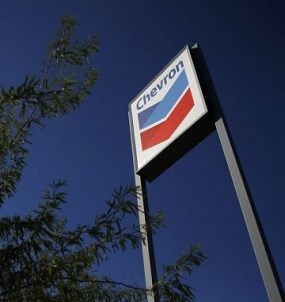Opinion: Chevron’s $53 Billion Deal Is a Risky Imitation of Exxon's Strategy
PERSPECTIVE
[Editor's Note: Opinions expressed are those of Reuters author Robert Cyran.]
(Reuters) — Chevron has decided, like Exxon Mobil, that it’s better to discover oil on the New York Stock Exchange than drilling in the ground. The $318 billion oil giant said Monday it would buy New York-based Hess for $53 billion in an all-stock deal.
The transaction is more speculative than Exxon’s $60 billion plunge into Texas shale, announced earlier this month when it agreed to buy Pioneer Natural Resources. It’s also dicey for CEO Mike Wirth.
There’s some similarities between the two transactions by America’s largest fossil-fuel drillers. Both are buying businesses run by founding families at recent – and perhaps soon-to-decline – toppy oil prices.
For Pioneer, it is Scott Sheffield, 71, who is selling, while John Hess, 69, is letting go at his family’s namesake. With Brent crude prices hovering around $91 a barrel and prospects for oil shaky at best, the decisions say something about the transition from wildcatters-turned-billionaires to drillers, whose existence is on the line.
The main appeal for Chevron is Hess’s 30% stake in a consortium producing oil offshore in Guyana. It is a prolific field, expected to pump out over 1.2 million barrels a day by 2027.
Hess has said the breakeven price for five projects there range from $25 to $35 per barrel, so even if prices fall considerably, the fields make money. Importantly, Chevron is catching up to Exxon, which runs and owns 45% of the same Guyana consortium. If the deal closes, Chevron will become a partner with Exxon.
The opportunity is already reflected in Hess’s stock price. It was already valued at 11 times EBITDA over the last four quarters, compared to Chevron’s 6 times. Sure, the premium on the all-stock deal is only 5% based on Friday’s closing price.
But Hess’s pre-tax profit next year, according to LSEG data, will be $4.7 billion. Add $1 billion of annual synergies from the combination, taxed at the statutory rate, and the deal's return is 9%. That’s slightly above Hess’s weighted average cost of capital, according to Morningstar. But it doesn’t leave much room for error or rising rates.
Higher production in Guyana after 2024 will increase Chevron’s returns, assuming the price of oil remains favorable. Exxon’s deal with Pioneer assumes a higher return in the near term. Both have giant respective fields in the Permian which can be turned on and off quickly. But in essence, Chevron boss Mike Wirth is making the more aggressive bet that oil demand sticks around for years to come by paying up for Guyana. That makes his path trickier. With electric car sales accelerating, the risk may be that he is expanding through a mega-acquisition exactly as oil demand starts to evaporate.
Related News
Related News

- Keystone Oil Pipeline Resumes Operations After Temporary Shutdown
- Freeport LNG Plant Runs Near Zero Consumption for Fifth Day
- Biden Administration Buys Oil for Emergency Reserve Above Target Price
- Mexico Seizes Air Liquide's Hydrogen Plant at Pemex Refinery
- Enbridge to Invest $500 Million in Pipeline Assets, Including Expansion of 850-Mile Gray Oak Pipeline





Comments